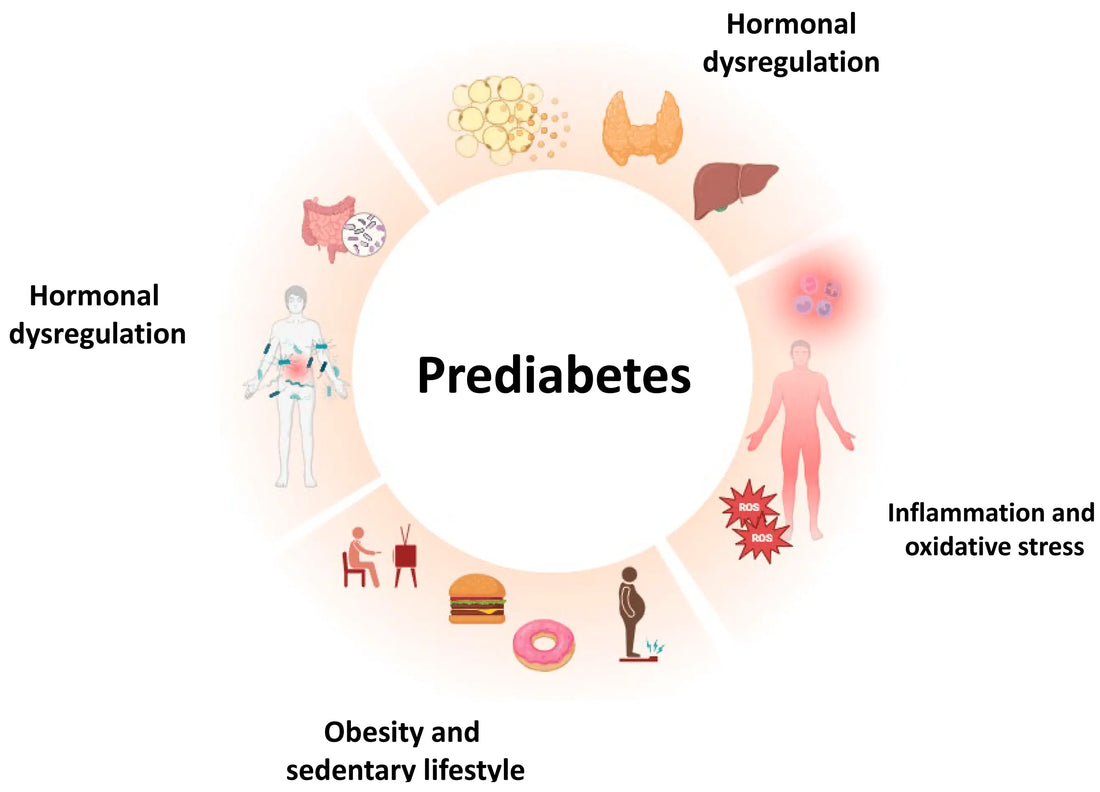Introduction
Prediabetes, a condition where blood sugar levels are higher than normal but not yet high enough to be classified as diabetes, has often been seen as a one-way road to diabetes. However, the reality is that prediabetes can be reversed. The key lies in understanding the relationship between lifestyle and blood sugar levels, identifying and correcting detrimental behaviors, and using advanced tools to guide this transformation. SusWel offers a comprehensive solution to help users achieve this, ultimately fostering lifelong healthy habits.
Main Content
The Reversibility of Prediabetes
Prediabetes is not an irreversible condition. With the right approach, it is possible to bring blood sugar levels back to normal ranges and prevent the progression to type 2 diabetes.
- Scientific Evidence: Numerous studies, including those by the National Institutes of Health and the Centers for Disease Control and Prevention, have demonstrated that lifestyle changes can significantly reduce blood sugar levels and reverse prediabetes.
- Core Principles: The core principles of reversing prediabetes include adopting a healthy diet, engaging in regular physical activity, maintaining a healthy weight, and managing stress.
How to Reverse Prediabetes
Reversing prediabetes involves a multifaceted approach focused on lifestyle modification and continuous monitoring.
- Healthy Diet: Emphasize whole foods, high in fiber and low in refined sugars and processed foods. Incorporate plenty of vegetables, lean proteins, and healthy fats.
- Regular Exercise: Aim for at least 150 minutes of moderate-intensity aerobic activity per week, combined with strength training exercises.
- Weight Management: Losing even a small amount of weight (5-10% of body weight) can significantly improve insulin sensitivity and lower blood sugar levels.
- Stress Management: Techniques such as mindfulness, meditation, and yoga can help reduce stress, which is known to negatively impact blood sugar levels.
- Continuous Monitoring: Regularly check blood sugar levels to understand how different foods, activities, and stressors affect your body.
Why Previous Methods Have Failed
Many traditional approaches to managing prediabetes have fallen short for various reasons.
- One-Size-Fits-All: Generic advice does not account for individual differences in metabolism, lifestyle, and health conditions.
- Lack of Support: Many programs do not provide ongoing support or education, leaving individuals to navigate their health journey alone.
- Inconsistent Information: Conflicting dietary and health advice can confuse individuals, making it difficult to make sustainable changes.
- Short-Term Focus: Many interventions focus on short-term results rather than fostering long-term healthy habits.
The SusWel Approach: A Path to Lifelong Health
SusWel offers a unique approach to reversing prediabetes by leveraging technology and personalized support.
- Personalized Insights: SusWel uses advanced technology to help users understand their unique relationship between lifestyle choices and blood sugar levels. This includes continuous glucose monitoring and personalized feedback.
- Behavioral Change Support: The program helps users identify detrimental behaviors and provides actionable strategies to replace them with healthier habits.
- Sustainable Lifestyle: By focusing on long-term habits rather than quick fixes, SusWel helps users establish a sustainable lifestyle that supports lifelong health.
- Technology Integration: SusWel's platform integrates various tools and resources to guide users through their health journey, ensuring they have the support they need at every step.
Conclusion
Prediabetes can be reversed through informed lifestyle changes and continuous monitoring. The key is to develop a deep understanding of how lifestyle choices impact blood sugar levels and to correct detrimental behaviors. SusWel's comprehensive approach leverages technology and personalized support to help users achieve this transformation, leading to lifelong health benefits.
Key References
- National Institutes of Health. "Diabetes Prevention Program (DPP)." NIH, 2023.
- Centers for Disease Control and Prevention. "Prediabetes – Your Chance to Prevent Type 2 Diabetes." CDC, 2023.
- American Diabetes Association. "Standards of Medical Care in Diabetes—2024." Diabetes Care, 2024.
- Fung, J. (2018). "The Diabetes Code: Prevent and Reverse Type 2 Diabetes Naturally." Greystone Books.
- Taubes, G. (2016). "The Case Against Sugar." Alfred A. Knopf.






